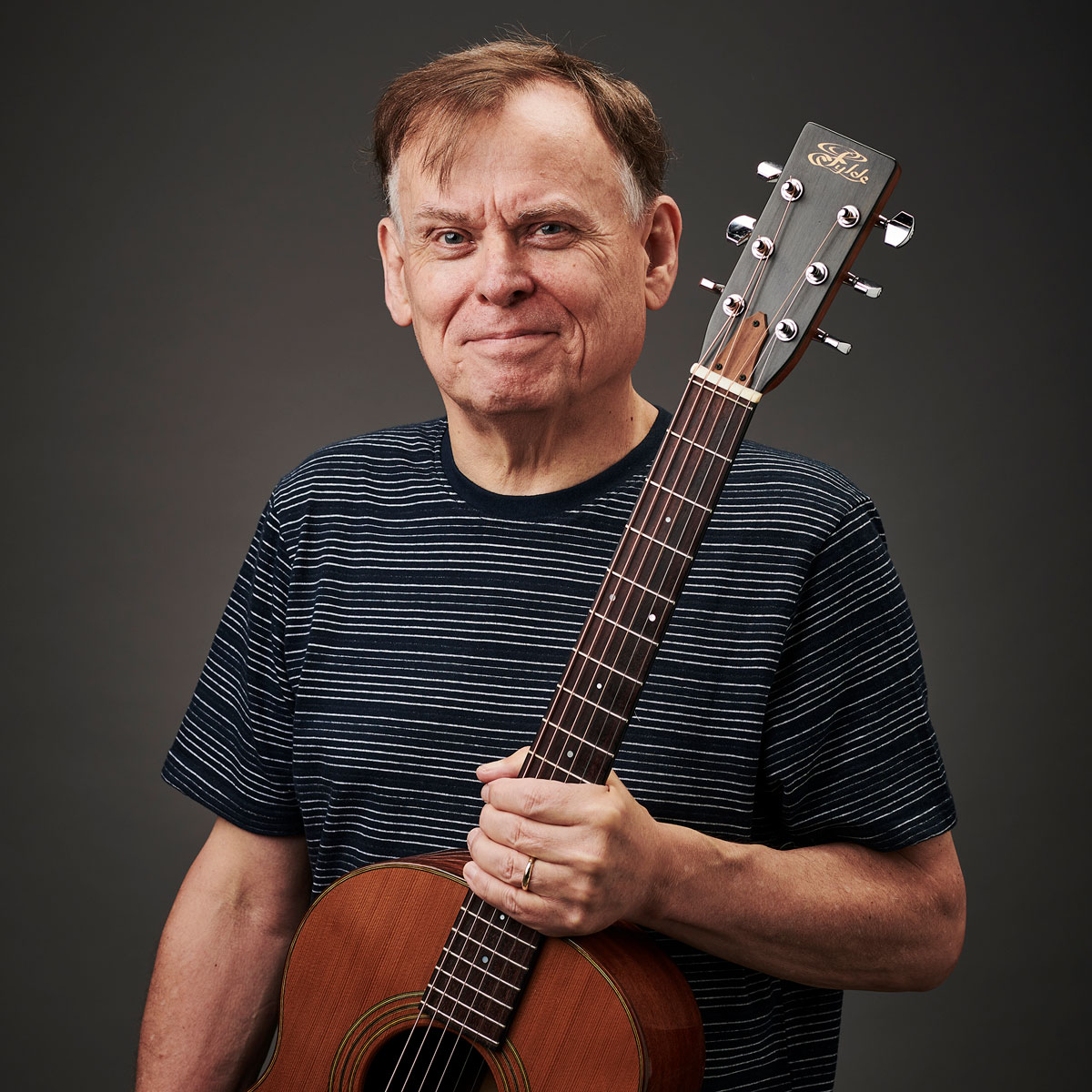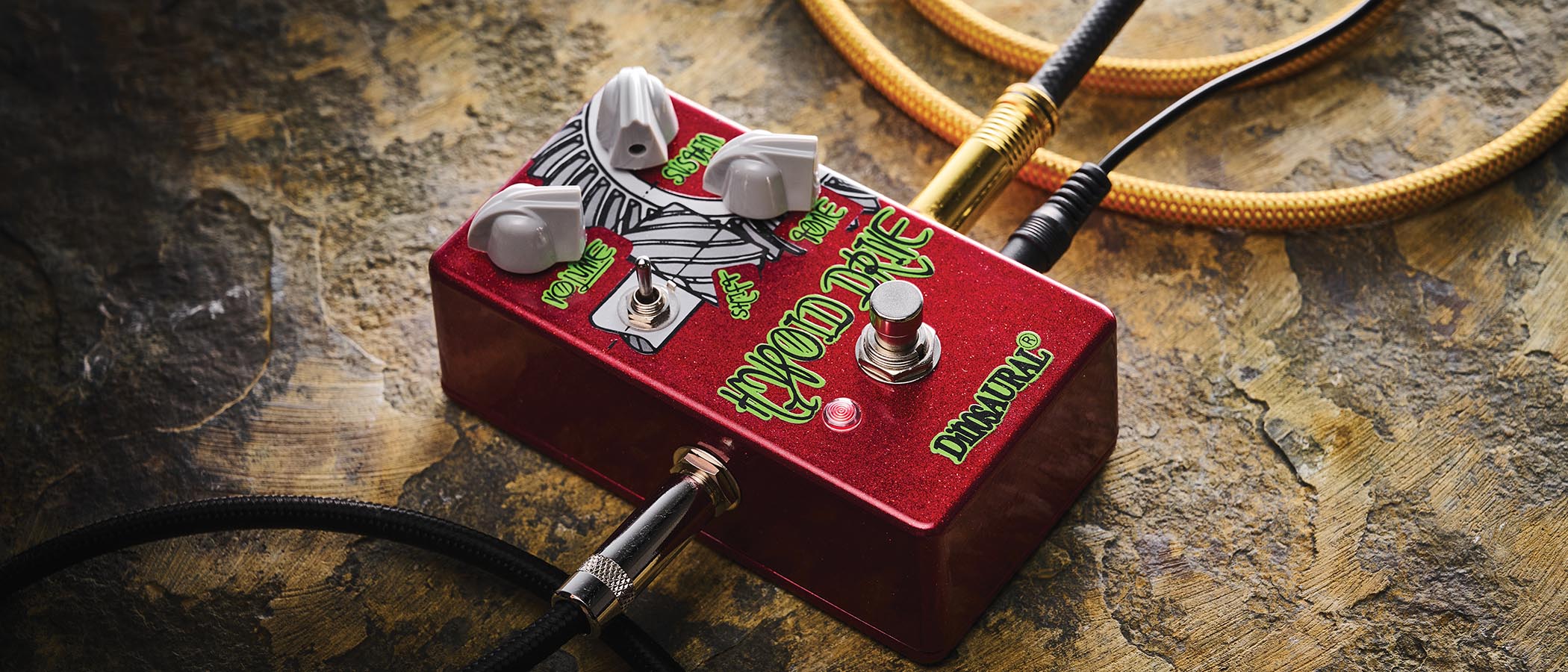Larry McCray: “When I saw Gary Moore’s live show and heard the sound that he was getting, I was like, ‘Man, I’ve got to come up with something a bit more powerful’”
The resurgent bluesman discusses the making of his new record, his love of the Flying V and how, despite his concerns, he had the time of his life in the studio with Joe Bonamassa
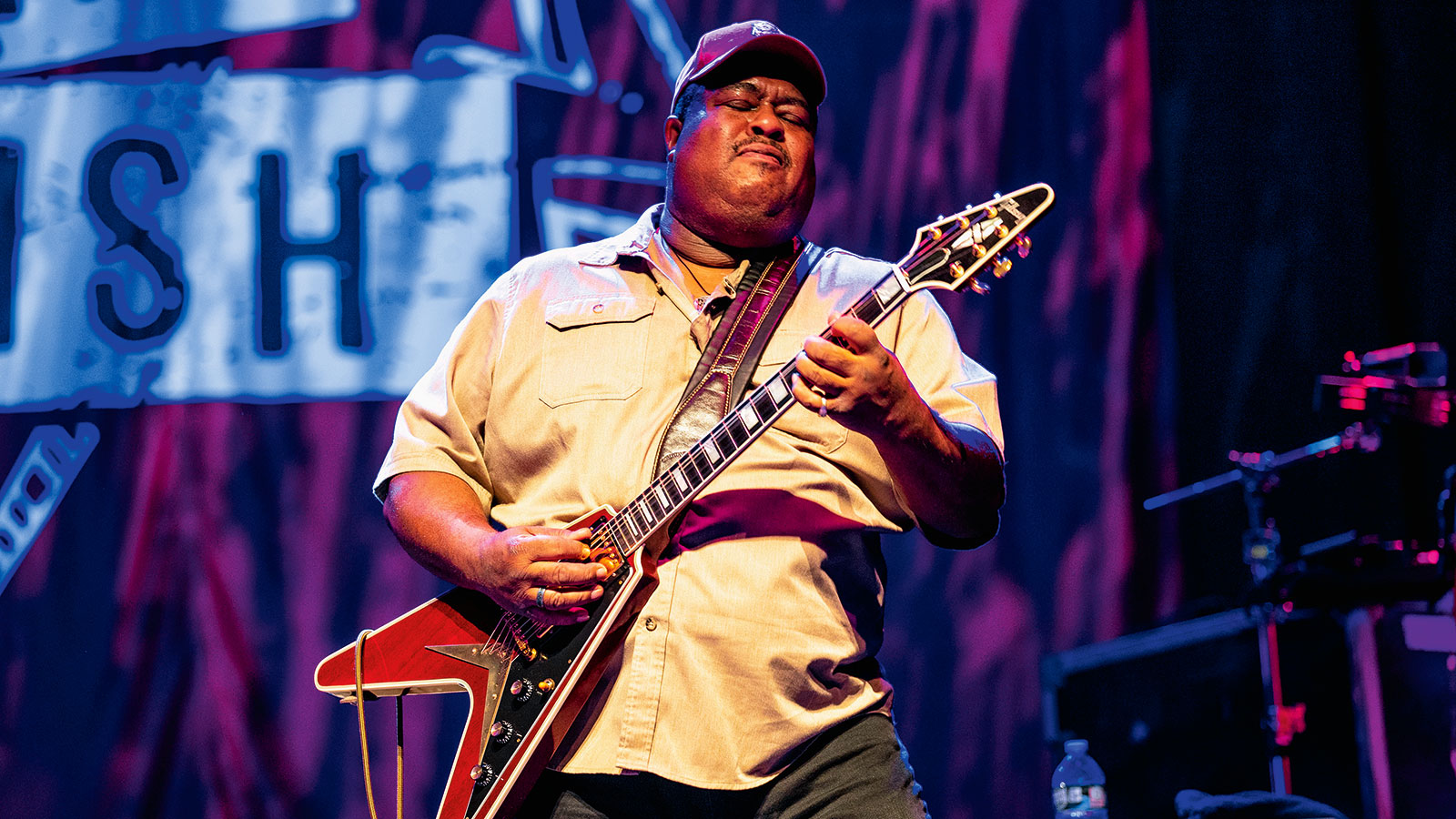
All the latest guitar news, interviews, lessons, reviews, deals and more, direct to your inbox!
You are now subscribed
Your newsletter sign-up was successful
Bluesman Larry McCray tells us how his career reignited after his music was played on Joe Bonamassa’s radio show and he sent Joe a text...
“I have some friends that used to tell me that Joe Bonamassa would play my music on his radio program. So, of course, I didn’t believe it. And those same friends had been telling me, ‘Why don’t you reach out to Joe?’ The same friends that told me to reach out put me in touch with musician Larry Mitchell, who had a direct contact to Joe.
“I got the contact and sent Joe a text saying, ‘Joe, this is bluesman Larry McCray, just reaching out to see if there are any opportunities that we might be able to do something together?’ I know he had just done a record with Joanna Connor the year before, so I knew there was a possibility that it might be something. So when I texted him, he got back to me within the first hour. I got a text back and he said, ‘We’d love to do a record.’”
“It was probably nine or 10 months before I heard back again, so I thought maybe he’d thought about it and didn’t want to do it. And then he called me and said, ‘Hey, where do you live?’ And I said, ‘I’m based in Michigan,’ and he said, ‘We’ll be there tomorrow,’ at my place.
“I was like, ‘Oh my God, they’re coming to the house.’ I still didn’t quite believe that they would come until they showed up. But then the next day they came right to my house and we sat down and we started playing music. I started showing them tunes and it just took off from there.”
There are many influences on the album. On Arkansas and Mr Easy your vocals sound like BB King. Was BB an influence?
“My sister Clara passed me the guitar when I was 11, turning 12 and I went to stay with her for summer vacations in school. That’s when I got involved with music. That’s when I started playing because she had guys that used to come to her house and we’d set up right in the living room and have an all-day jam session. So BB King was the most influential on my music because, at that time, BB was the most popular bluesman, and I really loved his music. So that’s why I started right there.”
All the latest guitar news, interviews, lessons, reviews, deals and more, direct to your inbox!
I called Albert Collins ‘The Razor’ because his guitar could slash and cut like no other bluesman at the time
What other influences were there?
“I had a theory that Freddie King was the power of the blues; I called him ‘Freddie The Freight Train’. I called Albert Collins ‘The Razor’ because his guitar could slash and cut like no other bluesman at the time. BB King was the elegance and the class of the blues, and Albert King made the guitar weep. Out of those four individuals, I had a lot to draw from and I tried to find my own style somewhere in between the four of them.”
Where was the new album recorded?
“It was recorded in Los Angeles at the EastWest Studio on Sunset Boulevard – Studio B, which is supposed to be the magic room. I guess it holds true to its reputation, you know. I feel that we got a little magic going in the studio, and it was a really fun session.”
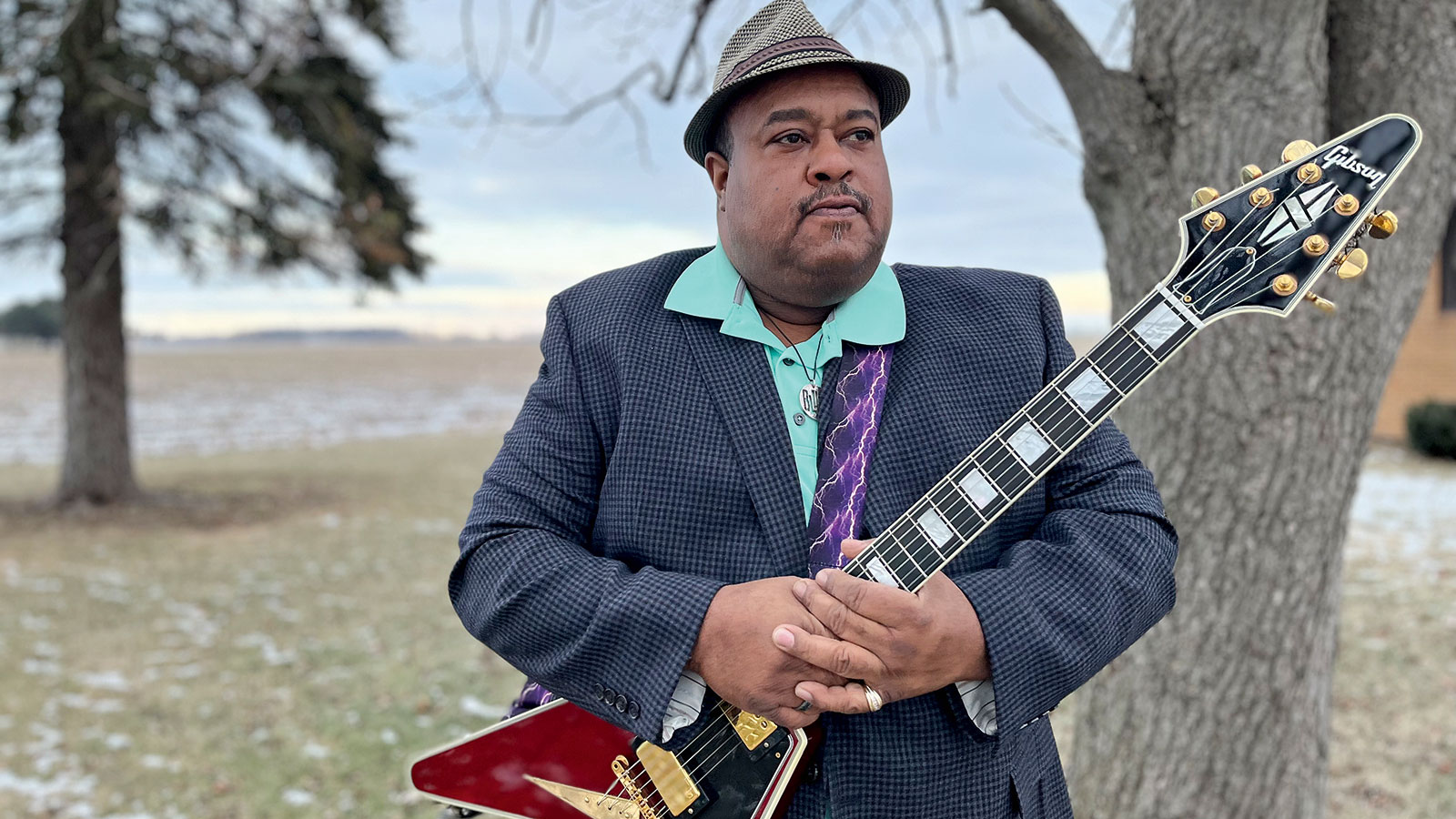
There’s a Flying V on the cover of your album. Is that one of the guitars you used on the record?
“Yes, that particular Flying V was a limited-edition called a Les Paul V because it has the headstock markers and the block inlays of a Les Paul Custom, and it has the same neck as the Les Paul Custom mounted to a V body.
“So the neck and everything is Les Paul and the body is a Flying V. They made three of them at the time, so I played all three and I chose that one because it felt the way that I like a guitar to feel.”
You’ve had quite a long association with the Flying V, haven’t you?
“Well, my first experience on the big stage was with Gary Moore in ’91. When I came to the UK back then, I came with a Stratocaster with Lace Sensor pickups and I was playing through a Fender Twin.
“When I saw Gary’s live show and saw what he used and heard the sound that he was getting, I was like, ‘Man, I’ve got to rethink this thing. I’ve got to come up with something a bit more powerful...’ When I came home, I wanted to get a humbucker guitar, but I’ve never liked to have things the same as everybody else.
“There was a Flying V hanging up in the music store and I quite like to play on the upper register of the guitar sometimes, and when I played the Flying V the neck was just totally accessible from the lowest note to the highest note. It had a heavier sound than my Stratocaster did, too. Also, I was sold on the fact that Albert King had played one and it was like I was paying tribute to him.”
Was that the primary guitar that you used on the album?
“Well, to be honest with you, I used a variety of different things on the album. I live in Michigan and I flew [to LA] and only carried one guitar, a Les Paul Deluxe, because it has mini-humbuckers and it’s quite diverse – it can sound like humbuckers, but it can also sound like a heavy single-coil guitar. Other than that I used Joe’s guitars, so I used one of his 355s, one of his Flying Vs and I also used one of his Stratocasters.”
What about amplifiers?
“Well, Joe has an array of Dumble amplifiers. I used one of those on a couple of tracks, and other than that it was a cross between Tweed and [black-panel] Fender. I’ll give you an example: Blues Without You (For Paul) was played on Joe’s 355 and a Dumble – straight into the amp, I didn’t use any effects. On Roadhouse Blues I used my Deluxe Les Paul with a [Fulltone] OCD into a Tweed. So one or two of the tracks were cut with the OCD. That’s my choice for overdrive because it is not so saturated, but it penetrates and it’s got the right amount of bite for me.”
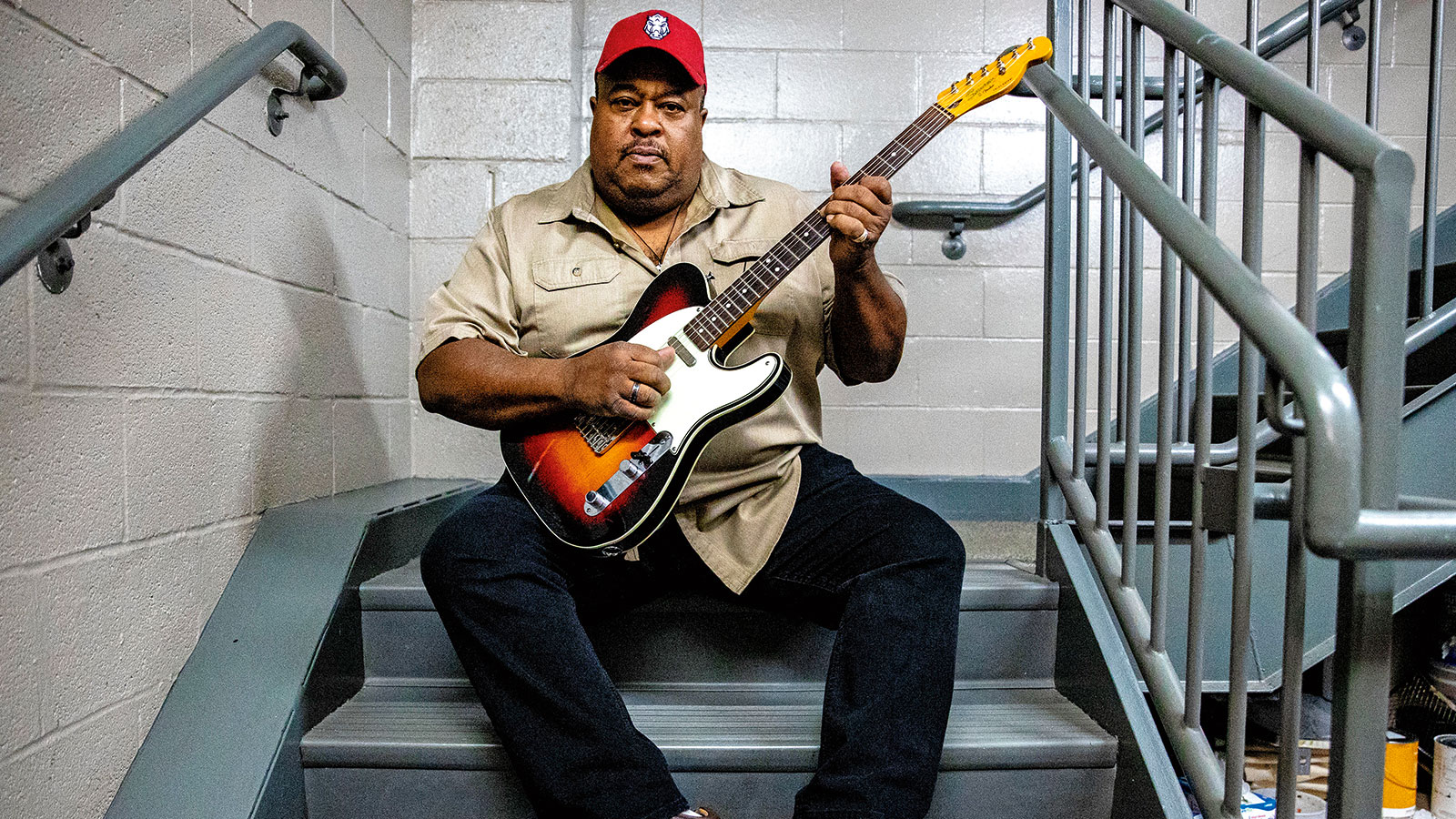
Let’s talk a little bit about songwriting. Where do you draw your inspiration from?
“Life events, real things that happened in life, but I try to make it relatable. During the pandemic I had a lot of time to think about things. I had been on the road for three or four years with no break. And when the pandemic came around, it actually saved my life because I had run myself down so low.
“I was so tired from having to be out there all the time. So I took this downtime, I had a lot to think about. I had been thinking about these things forever, and I finally had a chance to get something on paper.”
What’s it like touring the new material?
When Joe and I got into the studio it was one of the best times that I ever had. It was so easy. He was very graceful and just let me do my own thing
“I’m having a ball. It’s really nice to have new material to play for the people. With this project, I finally got somebody to help me produce the music that I was writing. I feel endeared by it, you know?
“With that being said, it was not work at all. It wasn’t hard for me to do this. It’s just music that I hear in my head, you know? So it was really nice to have someone to help me produce it and finally make it come to life. That was a special thing for me.”
What’s Joe like to work with in the studio?
“I had never got a chance to spend a whole lot of time with Joe. We had met years and years ago, and I had probably met him three or four times before going to the studio but only brief encounters.
“I felt that maybe it would be a little bit more stiff than what it was, you know? Joe seems to be a kind of a no-nonsense type of guy and I’m a big bullshitter; I like to have fun, I like to joke around. But when we got into the studio it was one of the best times that I ever had.
“It was so easy. He was very graceful and he was not a tyrant. He didn’t try to say, ‘Well, you need to do this and you need to do that,’ he just kind of let me do my thing and tried to make me comfortable. I really enjoyed the session with him and, since then, I have had some time to spend with him socially and get to know him. I just love the guy, he’s a cool young man, and I love that, I really do.”
Blues Without You is out now via KTBA Records.
With over 30 years’ experience writing for guitar magazines, including at one time occupying the role of editor for Guitarist and Guitar Techniques, David is also the best-selling author of a number of guitar books for Sanctuary Publishing, Music Sales, Mel Bay and Hal Leonard. As a player he has performed with blues sax legend Dick Heckstall-Smith, played rock ’n’ roll in Marty Wilde’s band, duetted with Martin Taylor and taken part in charity gigs backing Gary Moore, Bernie Marsden and Robbie McIntosh, among others. An avid composer of acoustic guitar instrumentals, he has released two acclaimed albums, Nocturnal and Arboretum.
